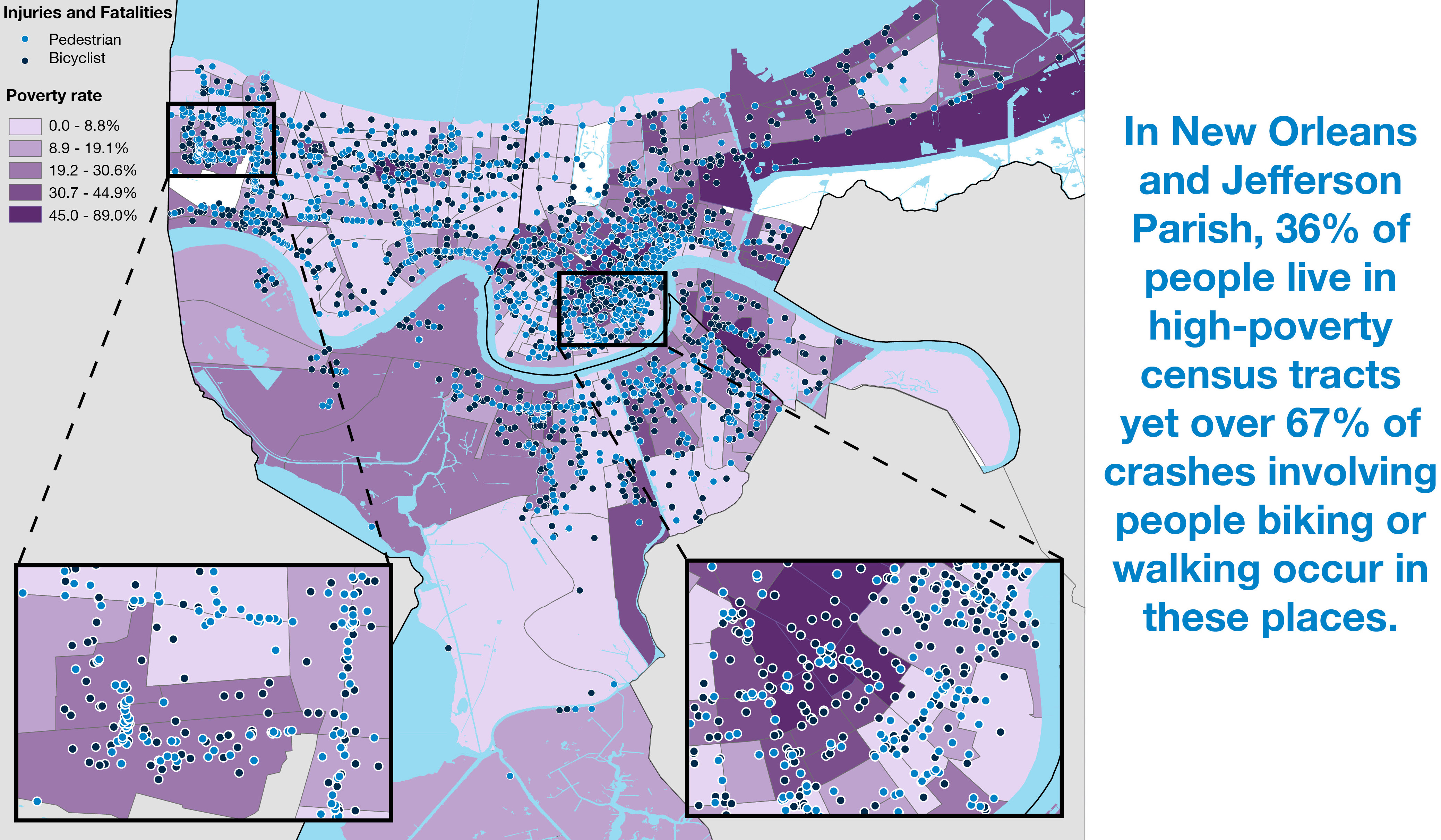
What is smart growth?
Smart growth is an approach to community design that connects housing, transportation, and land use to create healthy, prosperous, and resilient neighborhoods.

About us
Smart Growth America cultivates vibrant, sustainable communities with diverse living and transportation options, enhancing quality of life for all.

Our work
Smart Growth America cultivates vibrant, sustainable communities with diverse living and transportation options, enhancing quality of life for all.

Impact
Smart Growth America cultivates vibrant, sustainable communities with diverse living and transportation options, enhancing quality of life for all.

Events
Throughout the year, we host a number of in-person and virtual events covering topics related to public health, social equity, and climate resilience.


News
By Smart Growth America, December 20, 2017

The City of New Orleans and Jefferson Parish have made great strides in building out their bicycle networks and encouraging more people to bike, but much more work needs to be done to prioritize low-income areas, communities of color, and places with high rates of crashes and chronic diseases. To help achieve this goal, the National Complete Streets Coalition is pleased to release our latest report, Complete Streets for Health Equity: An Evaluation of New Orleans and Jefferson Parish.
In 2011, the City of New Orleans adopted a Complete Streets ordinance calling for, among other steps, annual evaluation of Complete Streets implementation, but the city has yet to deliver on this promise. We collaborated with the New Orleans-based nonprofit Bike Easy to create a list of performance measures New Orleans, Jefferson Parish, and jurisdictions around the country can use to maximize the benefit of Complete Streets projects and investments, particularly for the most vulnerable users of the road. The report includes four categories of performance measures and uses many of them to evaluate the success of Complete Streets in these jurisdictions with health equity in mind.
Bike Easy held an event earlier this month to share the report with key stakeholders throughout the New Orleans region. To learn more, check out their recap of the event or view the recordings of the panels and presentations. You can also read some reactions to the report in New Orleans and in Jefferson Parish.
We're excited to see how Complete Streets in New Orleans and Jefferson Parish progress as a result of this report. We hope our health equity performance measures and recommendations also serve as useful resources for jurisdictions around the country who want to make sure Complete Streets programs prioritize those who can benefit from them most.
Related News


By Nimotalai Azeez • August 10, 2017
News & Insights


By Nimotalai Azeez • August 10, 2017
News & Insights
Upcoming public events: Join us!


Subscribe to our newsletter
© 2026 Smart Growth America. All rights reserved
Site By3Lane Marketing



